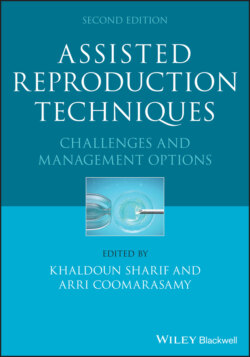Читать книгу Assisted Reproduction Techniques - Группа авторов - Страница 95
GnRH agonist co‐treatment during chemotherapy
ОглавлениеAdministration of GnRH analog (GnRHa) during chemotherapy has been proposed to protect ovarian reserve and fertility. One hypothesis is that GnRHa may protect the ovary by shutting down the hypothalamic–pituitary–ovarian axis, thus mimicking a prepubertal state when ovaries may be less vulnerable to the effects of chemotherapy [16]. Another hypothesis is that GnRHa may provide protection via reduced ovarian blood flow, resulting in reduced amounts of chemotherapeutic agents reaching the follicles [16]. Research evidence on the effects of GnRHa co‐treatment during chemotherapy has yielded conflicting results [16–19]. However, a 2019 Cochrane review concluded that GnRH agonist appears to be effective in protecting the ovaries during chemotherapy, in terms of maintenance and resumption of menstruation, treatment‐related premature ovarian failure and ovulation. However, evidence for protection of fertility was insufficient and needs further investigation [20]. Until more evidence is available, it would be reasonable to offer women GnRHa treatment during chemotherapy.
